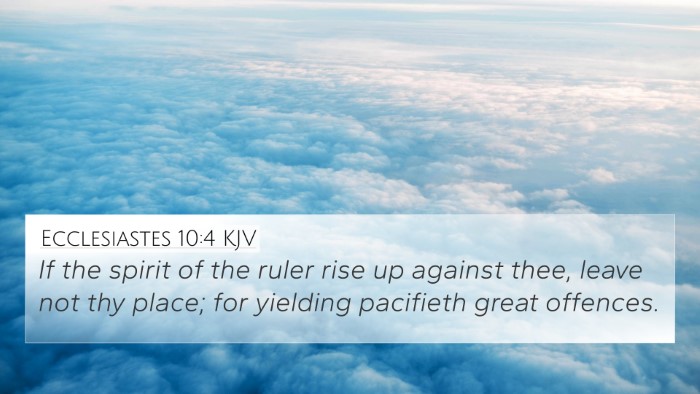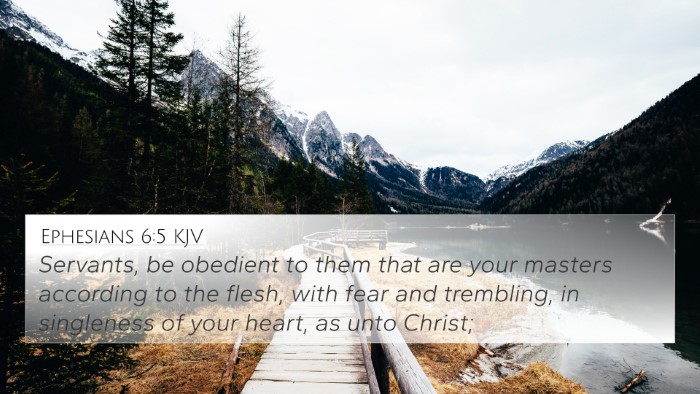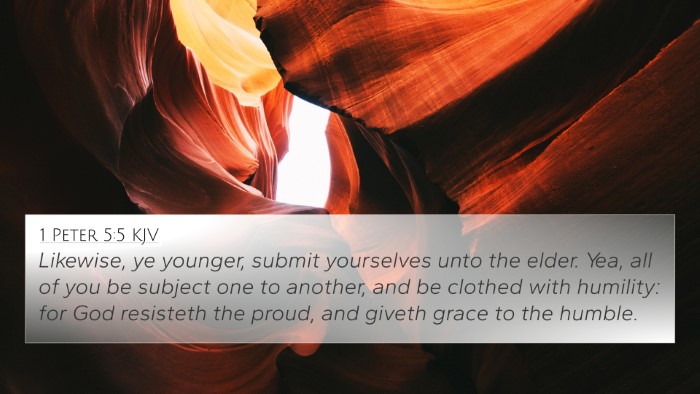Genesis 16:9 - Verse Overview
In Genesis 16:9, the angel of the Lord instructs Hagar, the Egyptian maidservant of Sarai, to return to her mistress and submit herself. This verse is pivotal in understanding themes of submission, divine guidance, and the complexities of human relationships within the Biblical narrative.
Summary of Biblical Meaning
This verse highlights several key aspects of Hagar's situation:
- Divine Command: The angel's directive emphasizes the importance of following God's will even in difficult circumstances.
- Submission and Authority: Hagar's return symbolizes an acknowledgment of the established authority within her household.
- Human Struggle: Hagar's plight speaks to the difficulties faced in human relationships, especially in the context of Abraham's family.
Insights from Commentaries
Matthew Henry's Perspective
Matthew Henry notes that the angel's command to return underscores the idea that God's plans often involve a degree of trial and submission. Henry emphasizes that submission to authority is sometimes a means through which God fulfills His promises. He also reflects on how God's guidance comes even in our afflictions, encouraging believers to trust in divine direction.
Albert Barnes' Interpretation
Albert Barnes expounds on the significance of Hagar's experience, suggesting that it illustrates the grace of God intervening in human affairs. Barnes sees the angel of the Lord not merely as a messenger but as God Himself offering reassurance and direction. He highlights the importance of returning to the path ordained by God, illustrating a theme of restoration and hope in a time of despair.
Adam Clarke's Commentary
Adam Clarke elaborates on the implications of Hagar's return, noting that it signifies not only obedience but also the complex feelings of a servant who has been wronged. Clarke discusses how this verse serves as a reminder that even those in lowly positions can receive divine communication and guidance. His insight emphasizes that God's attentiveness to Hagar's plight highlights the broader theme of divine care for the marginalized.
Key Themes and Connections
- Submission to Authority: Hagar's story ties closely with themes of submission found in other scripture.
- God's Care for the Marginalized: This resonates with other verses where God is attentive to the plight of the oppressed.
- Restoration and Obedience: Other figures in the Bible also receive divine commands that require returning to a place of submission.
Cross-References from Genesis 16:9
This verse can be understood more deeply through various cross-references:
- Genesis 21:9-10: Hagar's continued plight and the complexities of her relationship with Sarah.
- Exodus 1:14: The theme of oppression and the plight of the oppressed mirrors Hagar's experience.
- James 4:10: The Biblical theme of humility and submission is reiterated as a divine principle.
- 1 Peter 2:18: Submission to masters explores the concept of authority in a similar manner.
- Romans 13:1: Aligns with the theme of respecting governing authorities as part of God's order.
- Hebrews 13:17: Encourages submission to church leaders, reflecting broader themes of authority.
- Matthew 5:25-26: Advocates for reconciliation with others, closely related to Hagar's return.
Conclusion
Genesis 16:9 serves as a critical verse that introduces multiple themes such as submission, obedience, and divine intervention. By examining this scripture alongside other selected Biblical verses, one can gain a comprehensive understanding of the relational dynamics presented within the Biblical narrative. The commentaries by Matthew Henry, Albert Barnes, and Adam Clarke provide rich insights that enhance our understanding of this verse.
This exploration of Genesis 16:9 sheds light on the interconnectedness of scriptures, demonstrating how thematic Bible verse connections enrich our understanding of God's word and encourage a holistic approach to Scripture interpretation.








